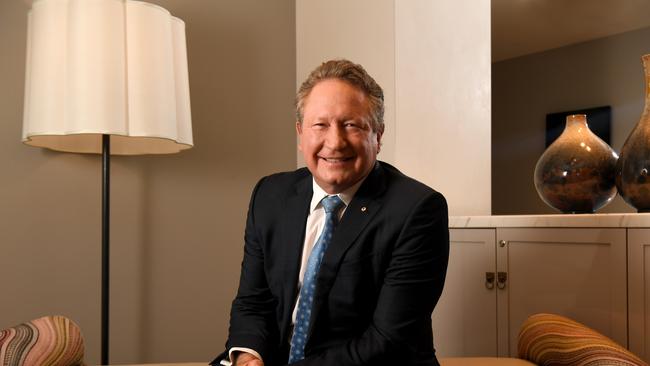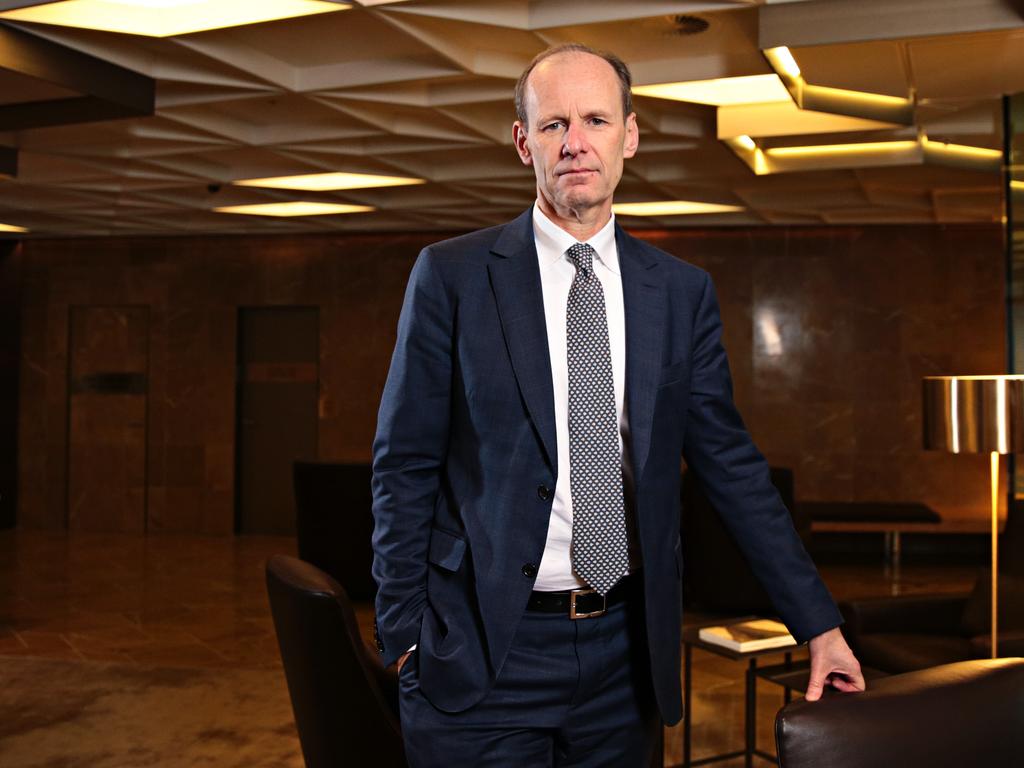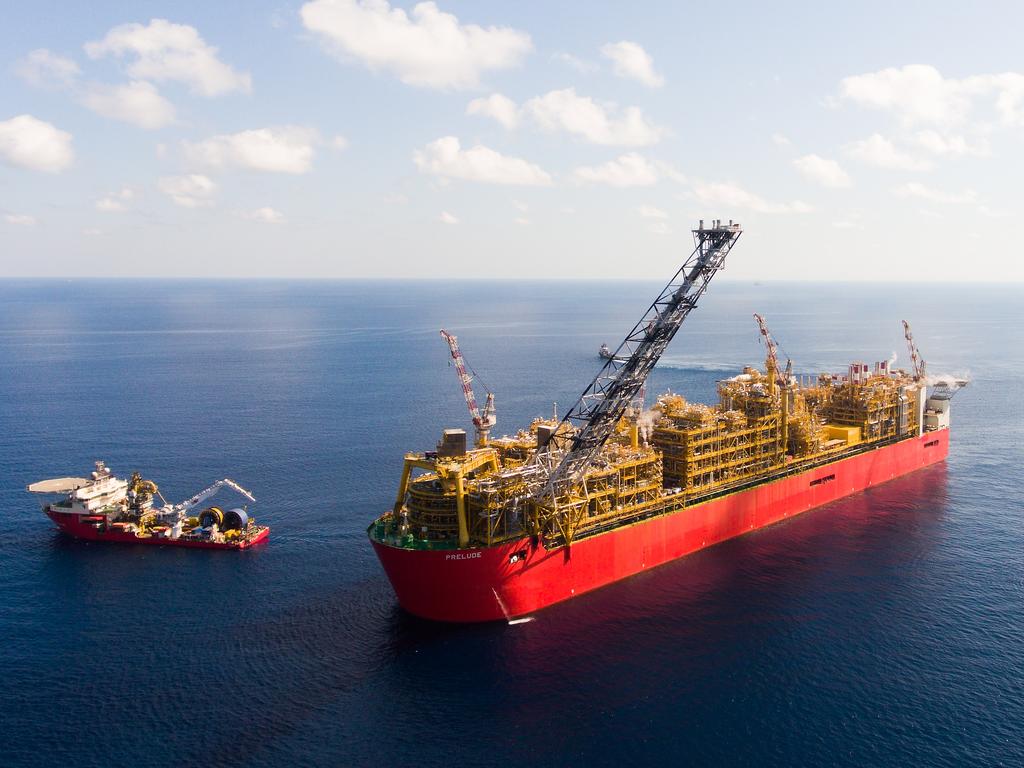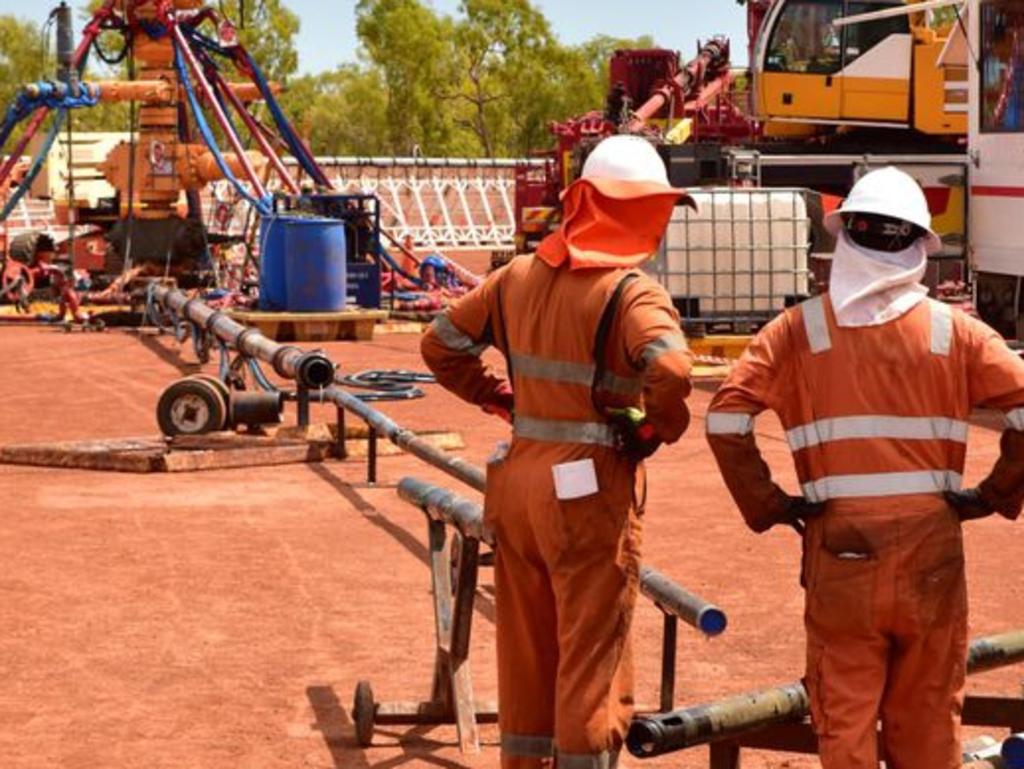Andrew ‘Twiggy’ Forrest to drive LNG gas import terminal
Billionaire Andrew Forrest is poised to give the green light for his NSW gas import terminal.

Billionaire Andrew Forrest is poised to give the green light for his NSW gas import terminal, putting it on track to become Australia’s first facility importing LNG, with plans to sign a long-term lease with Port Kembla.
The iron ore magnate, who has only just bought out the two Japanese owners of the plant, is expected to accelerate the project despite not having contracts in place to cover all of the supply and underpin the investment.
A long-term port access deal — giving Mr Forrest’s privately-owned Squadron Energy a lease to operate at Port Kembla for more than 20 years — is understood to be in the final stages of negotiations, sources said.
Proceeding with the facility would likely see Mr Forrest emerge as the first LNG importer in Australia only a few years after the nation toppled Qatar to become the world’s biggest LNG exporter.
Squadron, owned by Mr Forrest’s Tattarang, has already flagged construction potentially starting before the year’s end and first supplies to be delivered by late 2022. Squadron bought Maurbeni‘s 30.1 per cent stake and JERA’s 19.9 per cent share to assume full control of the facility earlier this month.
The project has been hamstrung by delays in signing up customers after targeting binding five-year deals with prospective east coast customers. EnergyAustralia has been the only named buyer so far despite a vocal campaign by big industrial users over difficulties securing long-term gas supplies.
Five import plants have been proposed in Australia with two in NSW — the Port Kembla facility and a South Korean sponsored development in Newcastle, while in Victoria AGL Energy is battling planning delays for its Crib Point scheme in the Mornington Peninsula, with Viva Energy’s Geelong hub accelerating plans to sign off on its venture.
Venice Energy also has plans for a South Australian project and on Thursday submitted its development application to the State Commission Assessment Panel with a decision due in early 2021.
Australia’s southern states urgently require new sources of gas to fill a looming supply shortfall as production from offshore Victoria dries up.
A raft of mooted LNG import projects dotted along the east coast “are the only means of securing supply sooner rather than later and at the necessary volume”, consultancy EnergyQuest says.
Forecasts from producers show several gas fields could end production from mid-2023 to mid- 2024, prompting the Morrison government to consider new measures including a national gas reservation scheme to ensure enough supplies are in place for local users.
Still, energy producers are on edge the government’s approach could backfire and dent future spending should suppliers be obliged to set aside a certain quantity of gas for local users.
Origin Energy has advised the Morrison government against fresh intervention in the east coast gas sector and warned a mooted reservation scheme was unnecessary and could kill off investment and lift prices.
The operator of Queensland’s $25bn APLNG gas export project is wary of any new measures given it already holds commitments to supply the east coast market through the Australian Domestic Gas Security Mechanism, which ensures exporters offer uncontracted gas to the domestic market.
“There’s been talk about a reservation policy and look we don’t think it’s necessary,” Origin chief financial officer Lawrie Tremaine told the CFO Live business forum on Thursday.
“Governments should facilitate us to bring new gas supply to the market. That’s a priority. And more assertive intervention by governments runs the risk of having exactly the opposite effect of what‘s intended. They really could kill off investment.”
Resources Minister Keith Pitt began the process of implementing a national gas reservation system on Tuesday, seeking input from state governments, gas companies and energy users before a final decision in June 2021. Western Australia already operates a reservation scheme requiring 15 per cent of gas reserves at LNG export projects to be set aside for use within the state.
Origin echoed warnings from other producers that new measures may move investment offshore and not lead to lower prices.
“Investment in our industry tends to be global and capital will shift to the best place,” Mr Tremaine said. “So governments are aware if they get that wrong through heavy handed intervention, they can actually shift the investment elsewhere and have a negative price impact. If we can just bring on gas that’s available, that would be clearly positive to both supply and price.”
One of Origin’s partners in APLNG, ConocoPhillips, this week also cautioned against intervention in the gas market.






To join the conversation, please log in. Don't have an account? Register
Join the conversation, you are commenting as Logout